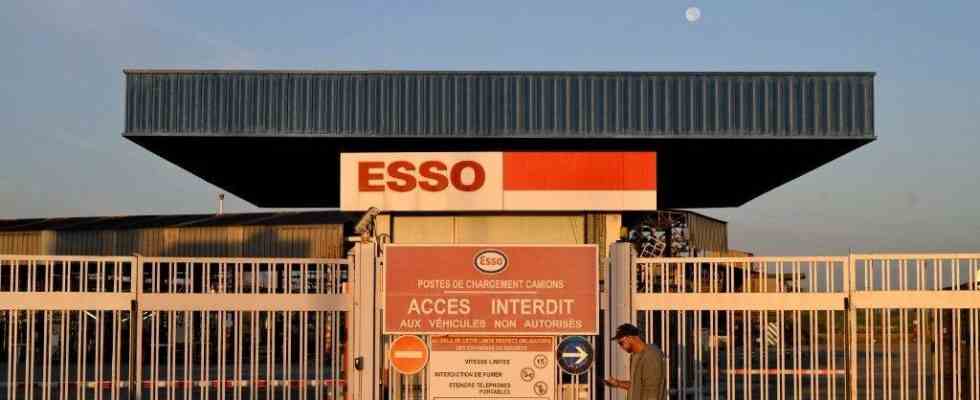The comings and goings of tanker trucks resumed this Friday morning at the Fos-sur-Mer refinery, which belongs to the Esso group, the day after the strike was lifted. Some trucks go as far as Nice to deliver the precious fuel to the brand’s stations but also to other customers, purchasing centers and major retail chains under contract with the refinery. “Normally, 120 shipping trucks leave here every day,” explains Lionel Arbiol, CGT delegate, who has not yet counted down the day. The land route is not the only one to supply gas stations from Fos. The largest volumes leave in fact by pipeline and railcars. A pipeline thus serves the oil depots of the Rhône valley, the Lyon region and the Côte d’Azur. As for the train, it makes it possible to supply the South-West via Toulouse.
“We are able to supply the market”, we assure the communication of the Esso group. Does this mean that motorists will be able to return to gas stations, without any more queues? Nothing is less sure to listen to the CGT: “It will depend on the frenzy, if many tankers come, there will be nothing in four to five days”, estimates Lionel Arbiol. Because shipments are currently drawing on the refinery’s stocks, namely the 1.1 million m3 (or 1.1 billion liters) of storage capacity for finished products, if the tanks are full.
No production for several weeks
“We will continue to import finished products”, reassures Esso, who also admits that “everything is always a question of supply and demand”. In other words, if demand is strong, there can be supply implications in times of stress. However, it will take Esso “several weeks” before restarting its own production at Fos, the smallest refinery in France, after this long stoppage during the strike, almost three weeks. “A refinery is not an ‘in’ and ‘off’ button, we remember at Esso, it’s a Seveso site. A safe and secure reboot involves several steps. »
“It does not stop and does not restart in one turn of the key, also explains Lionel Arbiol. There is a whole process of rising in temperature, in pressure, so that the oil distills into different products. He is counting on three weeks, if he refers to the previous strike against the pension reform. “This strike is the most important we have known in Fos”, advances Lionel Arbiol, who is pleased that the movement has “shed light on the subject of superprofits and wage increases”. “Without our mobilization, the amendment would not have been widely passed in the Assembly, some deputies who had their eyes closed have opened them,” he says.
On the side of the TotalEnergies site in La Mède, the strike is renewed until Friday evening. The landscape is therefore not yet back to normal for all the service stations in the territory, which distribute 118 million liters of petrol every day, according to figures from Ufip Energies and Mobilities (professional organization bringing together energy and oil companies). This corresponds to approximately 5 million full per day, at one of the 11,000 service stations in France.

